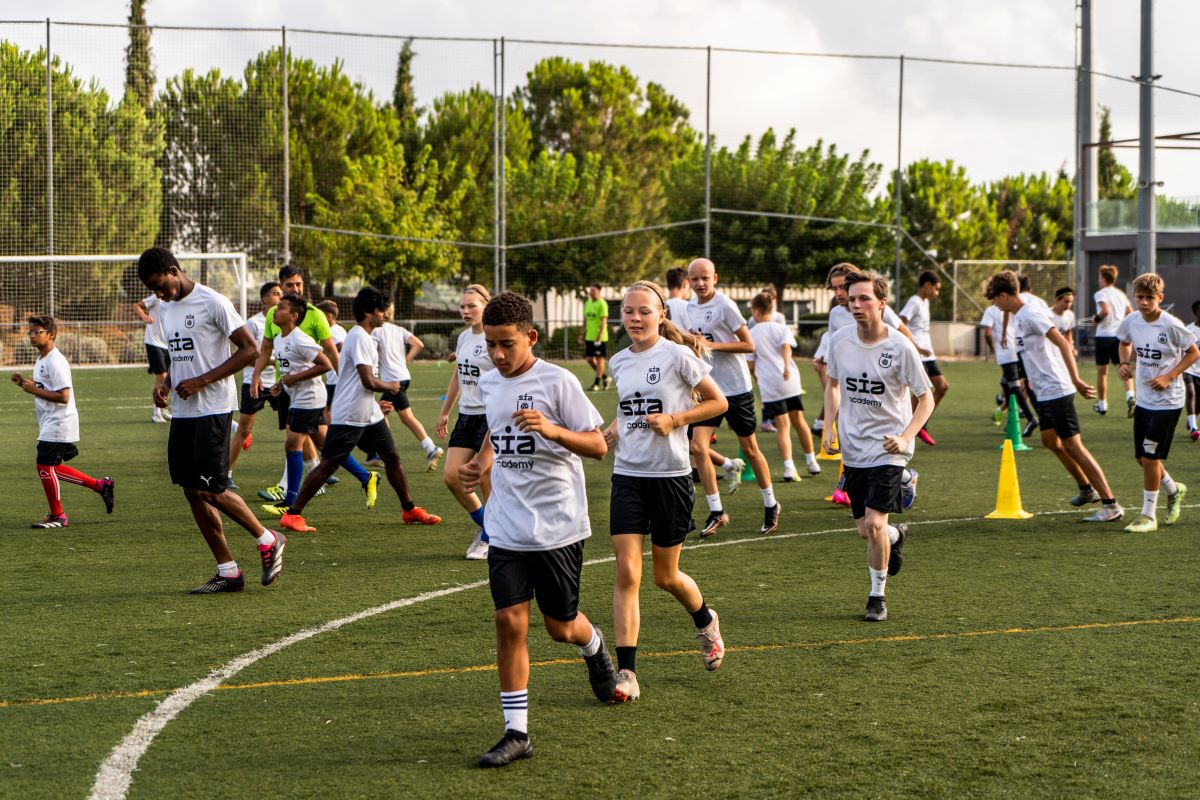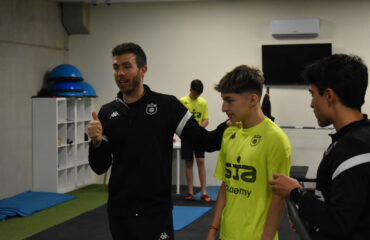Here are three key tips to follow to look after the health of an elite footballer:
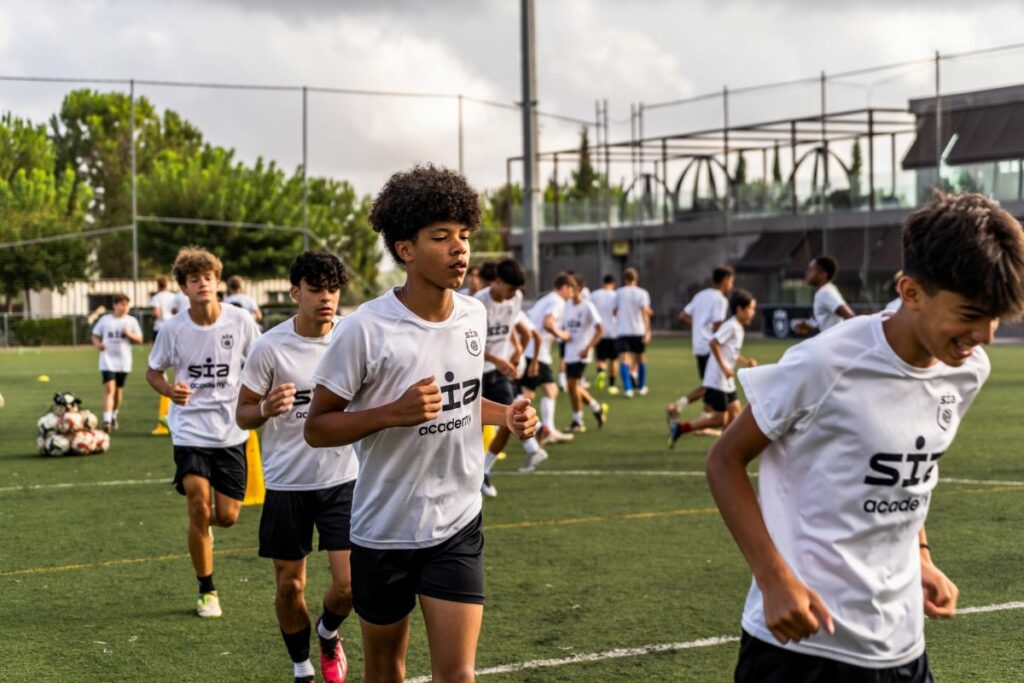
1. Taking care of the diet of a football player
Diet is a fundamental pillar in the performance of a professional athlete. To reach their maximum potential, it is crucial that their diet is balanced and adapted to the demands of their training.
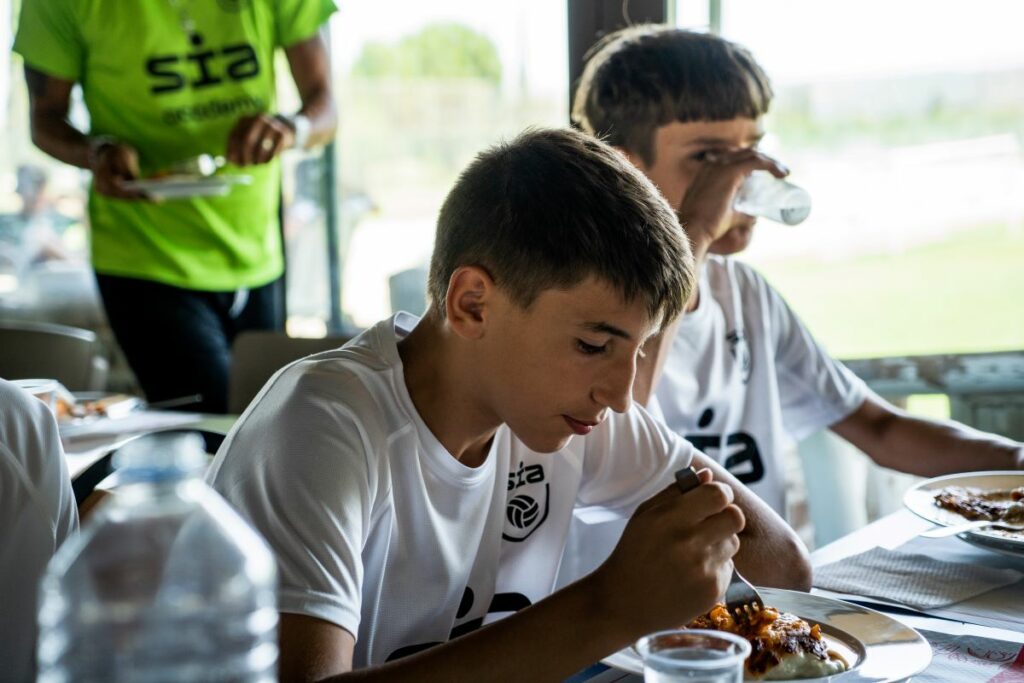
Controlling the necessary intake of macronutrients for a football player
Football players need a balanced diet that provides them with the energy and nutrients necessary for performance on the field. Macronutrient ratios may vary depending on the type of training, position on the field and individual needs.
Here is a general guide to the macronutrients required for football players:
Carbohydrates:
As football is a high-intensity, endurance sport, carbohydrates are crucial for maintaining energy levels. They should account for approximately 55-65% of total calories. Opt for complex carbohydrates such as whole grains, brown rice, quinoa, fruits and vegetables to provide sustained energy during training and matches.
Protein:
Protein is essential for muscle recovery and repair, as well as maintaining lean mass. They should make up about 15-20% of total calories. A range of 1.2 to 1.6 grams of protein per kilogram of body weight per day is a reasonable target for most football players.
Fats:
Fats are important for overall health and can contribute to energy in lower intensity activities. They should account for about 20-30% of total calories. Opt for healthy fats such as those found in avocados, nuts, olive oil and oily fish.
It is essential to remember that these proportions are general guidelines and that requirements may vary according to individual characteristics and type of training. Football players often have varying energy demands depending on their position on the field (defenders, midfielders, forwards), intensity of training and matches, as well as factors such as age and gender.
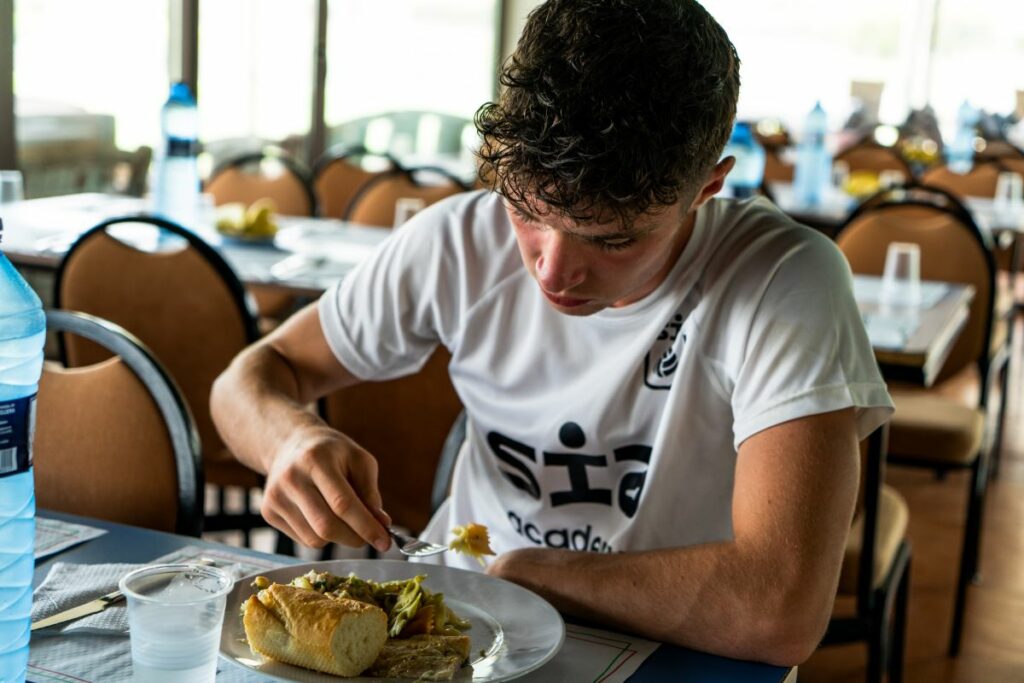
2. Maintain constant hydration during physical activity
Maintaining good hydration is essential for the performance and health of football players, as sweat and physical activity can lead to significant fluid and electrolyte loss.
Here are some key strategies to ensure adequate hydration:
Drink water before, during and after physical activity:
Players should start hydrating before training or a match. Drinking water regularly during breaks and rest periods is essential to maintain hydration levels during physical activity. After practice or the game, ensure that players replenish lost fluids..
Monitor an athlete’s thirst:
Thirst is a natural indicator that the body needs fluids. Encourage players to listen to their body and drink when they feel thirsty. However, they should not rely solely on thirst, as sometimes this signal can be delayed.
Drink sports drinks:
In situations of intense and prolonged training or matches, sports drinks can be useful to replenish lost electrolytes along with fluids. These drinks contain sodium, potassium and other minerals that help maintain electrolyte balance.

3. Other tips to avoid dehydration:
Dehydration can negatively affect performance and concentration. Make sure players are aware of the symptoms of dehydration, such as dry mouth, dark urine, fatigue and dizziness.
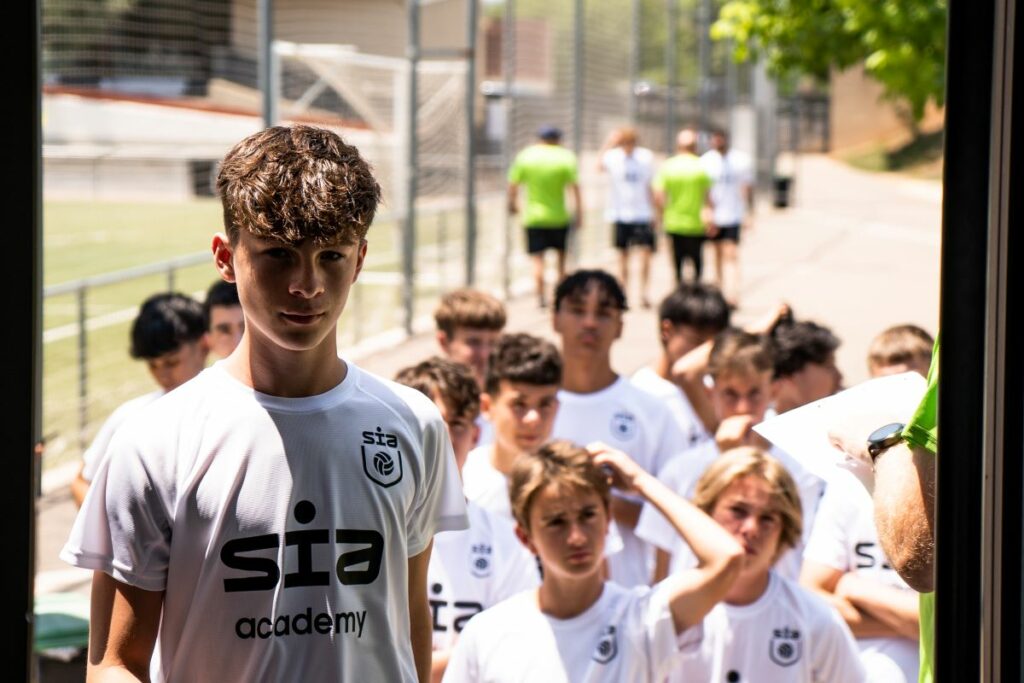
Ongoing education:
Educate players about the importance of hydration and how it affects their performance. Provides information on the amount of fluids they should consume before, during and after physical activity.
Environment and weather conditions:
Adjusts hydration strategies according to weather conditions. In hot and humid climates, fluid loss can be more significant, so special attention should be paid to hydration.
Individual testing:
Some teams may conduct sweat tests to assess the amount of sodium a player loses in sweat. This can help customise hydration strategies and beverage choices.
Remember that each player is unique, so it is important to adjust hydration strategies based on their individual needs and specific training and playing conditions. Working in conjunction with a health professional or sports dietitian can help design an effective hydration plan for the team.



